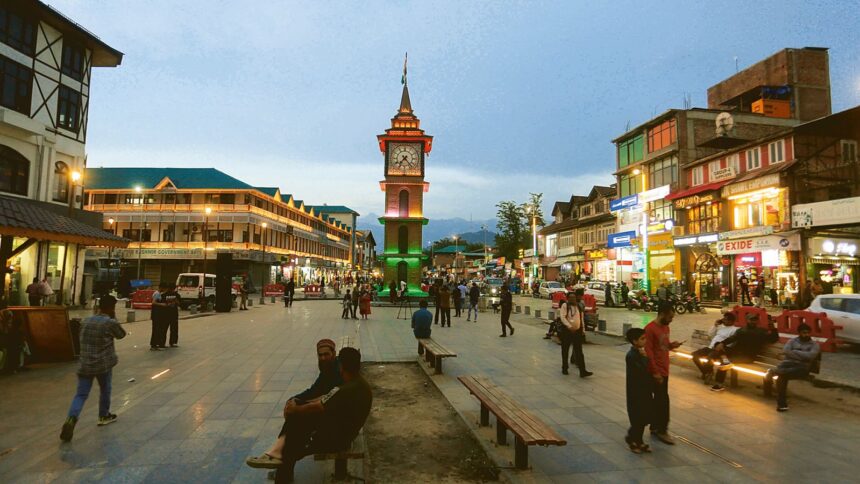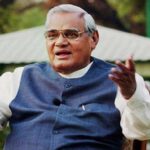EIGHTEEN DAYS after a deadly terror attack in J&K’s Pahalgam prompted India to launch a military strike against Pakistan leading to four days of fierce confrontation, the , marking an end to hostilities.
Announcing the ceasefire, Foreign Secretary Vikram Misri said at a media briefing Saturday evening, “The Director General of Military Operations (DGMO) of Pakistan called the Director General of Military Operations of India at 1535 hours IST earlier today. It was agreed between them that both sides would stop all firing and military action on land and in the air and sea with effect from 1700 hours Indian Standard Time today. Instructions have been given on both sides to give effect to the understanding.”
The DGMOs will talk again at noon on May 12, he said.
The United States, however, claimed credit for brokering the ceasefire. President said the two countries agreed on a full and immediate ceasefire “after a long night of talks mediated by the United States”.
External Affairs Minister S Jaishankar framed the ceasefire as the working out of an “understanding” between India and Pakistan. “India has consistently maintained a firm and uncompromising stance against terrorism in all its forms and manifestations. It will continue to do so,” he wrote on X. Having drawn new redlines by conducting strikes on terror sites not just in Pakistan-occupied Kashmir but across the International Border deep inside Pakistan, Jaishankar’s assertion underlines that Islamabad will have to pay a heavy price for state-sponsored terrorism.
Post the announcement, Jaishankar and National Security Advisor Ajit Doval spoke to ministers in key countries including China, Saudi Arabia and the European Union.
The Chinese Foreign Ministry said Doval spoke to Chinese State Councillor Wang Yi. “Doval said that the Pahalgam terrorist attack caused serious casualties among Indian personnel and that India needed to take counter-terrorism actions. War was not India’s choice and was not in the interests of any party. India and Pakistan would be committed to a ceasefire and look forward to restoring regional peace and stability as soon as possible,” it said.
“Wang Yi said that China condemns the Pahalgam terrorist attack and opposes all forms of terrorism. The current international situation is turbulent and intertwined. Peace and stability in the Asian region is hard-won and deserves to be cherished. India and Pakistan are neighbours that cannot be moved away, and both are neighbours of China. China appreciates your statement that war is not India’s choice, and sincerely hopes that India and Pakistan will remain calm and restrained, properly handle differences through dialogue and consultation, and avoid escalation of the situation. China supports and expects India and Pakistan to achieve a comprehensive and lasting ceasefire through consultations. This is in the fundamental interests of India and Pakistan and is also the common wish of the international community,” it said.
Saudi Foreign minister Faisal bin Farhan bin Abdullah also called up Jaishankar and Pakistan Deputy PM and Foreign minister Ishaq Dar and discussed de-escalation of tension and ending the ongoing military confrontation.
EU’s foreign affairs and security policy chief Kaja Kallas too spoke with Jaishankar and Dar and said: “The announced ceasefire between India and Pakistan is a vital step toward de-escalation. All efforts must be made to ensure it is respected. The EU remains committed to peace, stability, and counter-terrorism in the region.”
Reiterating that the US brokered the ceasefire, Secretary of State Marco Rubio said he and Vice President JD Vance “engaged with senior Indian and Pakistani officials, including Prime Ministers and , External Affairs Minister Subrahmanyam Jaishankar, Chief of Army Staff Asim Munir, and National Security Advisors Ajit Doval and Asim Malik” over the last 48 hours. “We commend Prime Ministers Modi and Sharif on their wisdom, prudence, and statesmanship in choosing the path of peace,” he said in a press statement.
Vance spoke with Prime Minister Modi, the New York Times said, quoting a person close to the Vice President.
In his statement, Rubio also said India and Pakistan “have agreed… to start talks on a broad set of issues at a neutral site.” This has been contested by Indian officials, who said all “coercive diplomacy measures” including the suspension of the Indus Water Treaty remain in place.
Government sources in New said the decision to stop firing and military action was worked out “directly between the two countries”, and there was no “third party involvement”. India always insists that India and Pakistan resolve issues without any mediation by a third party — something that is set in the 1972 Simla agreement.
“The Pakistan DGMO initiated the call this afternoon, after which discussions took place and an understanding was reached. There is no decision to hold talks on any other issue at any other place,” a source, who did not wish to be named, said. Further, there are “no pre-conditions” and “no post-conditions” to the understanding, the source said.
In a post on X, Pakistan Deputy PM and Foreign Minister Ishaq Dar wrote, “Pakistan and India have agreed to a ceasefire with immediate effect. Pakistan has always strived for peace and security in the region, without compromising on its sovereignty and territorial integrity.” This appears to be Pakistan government’s core concern that the “sovereignty and territorial integrity” cannot be compromised — as was perceived to be breached by India conducting the strikes in nine locations deep inside Pakistan.
Earlier in the day, after a phone conversation with Rubio, Jaishankar had said that India’s approach has always been measured and responsible. Rubio, who also spoke to Munir, said that he “offered US assistance in starting constructive talks in order to avoid future conflicts”. This was the first direct contact between the US administration and the Pakistan Army Chief.
The development had capped a night of Indian and Pakistani militaries targeting each other’s installations.








